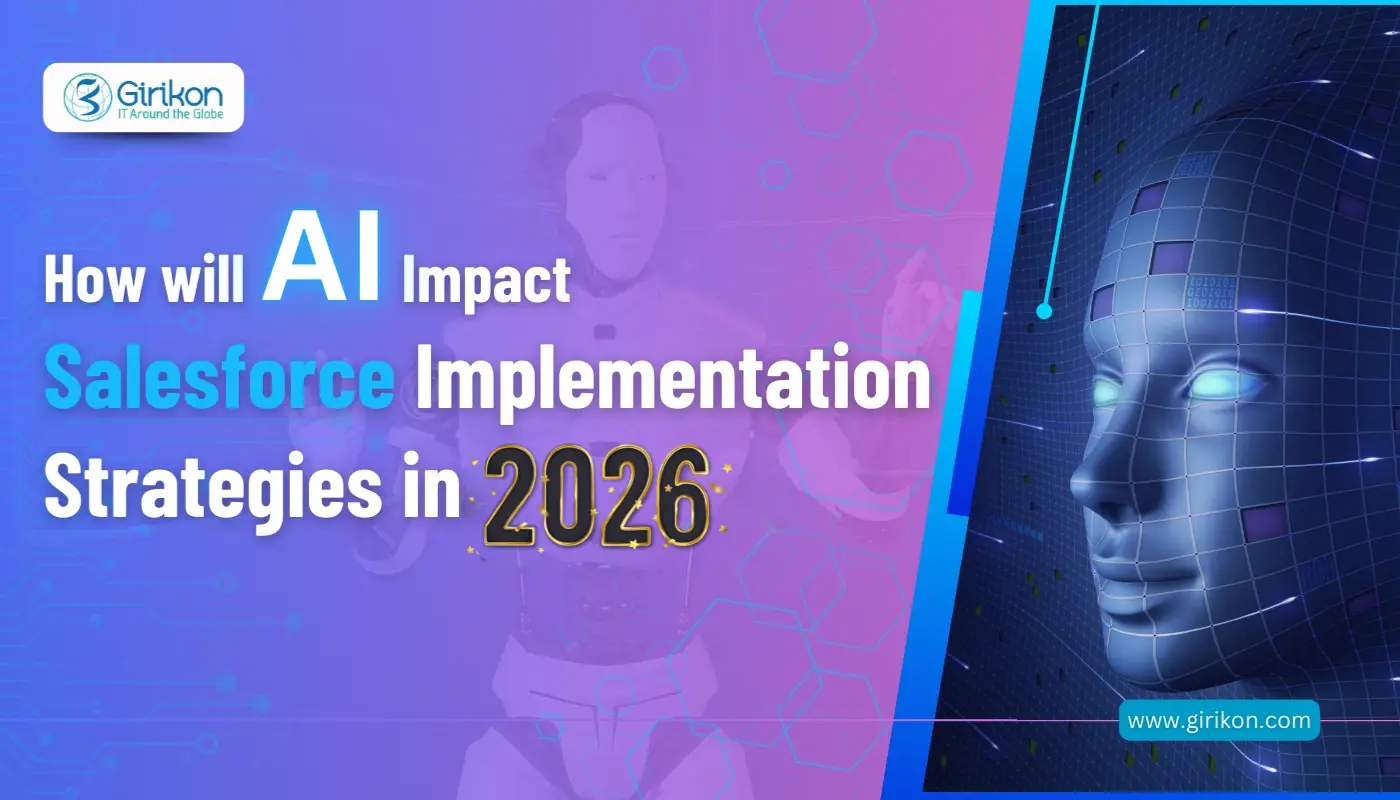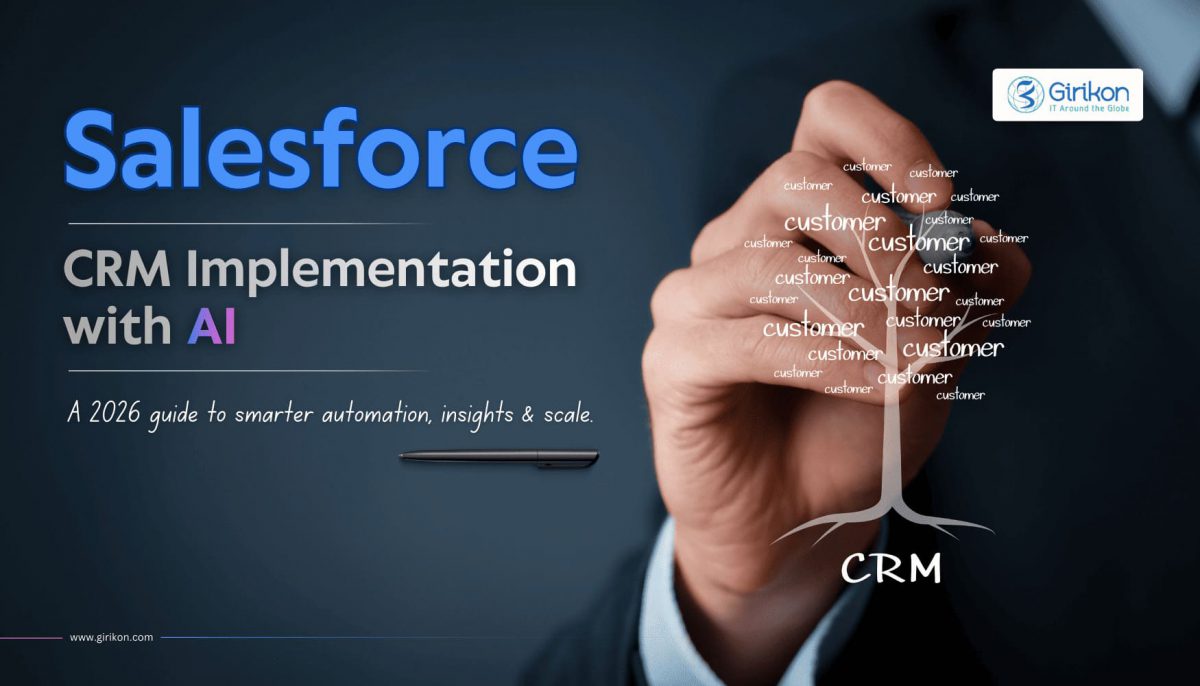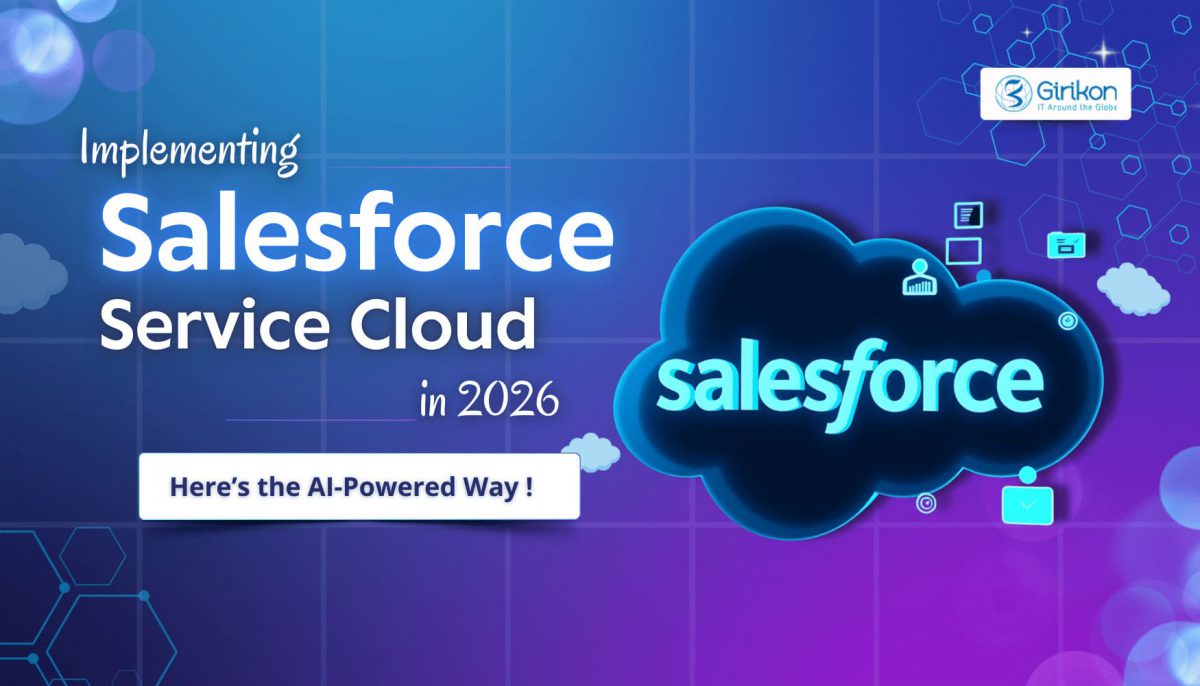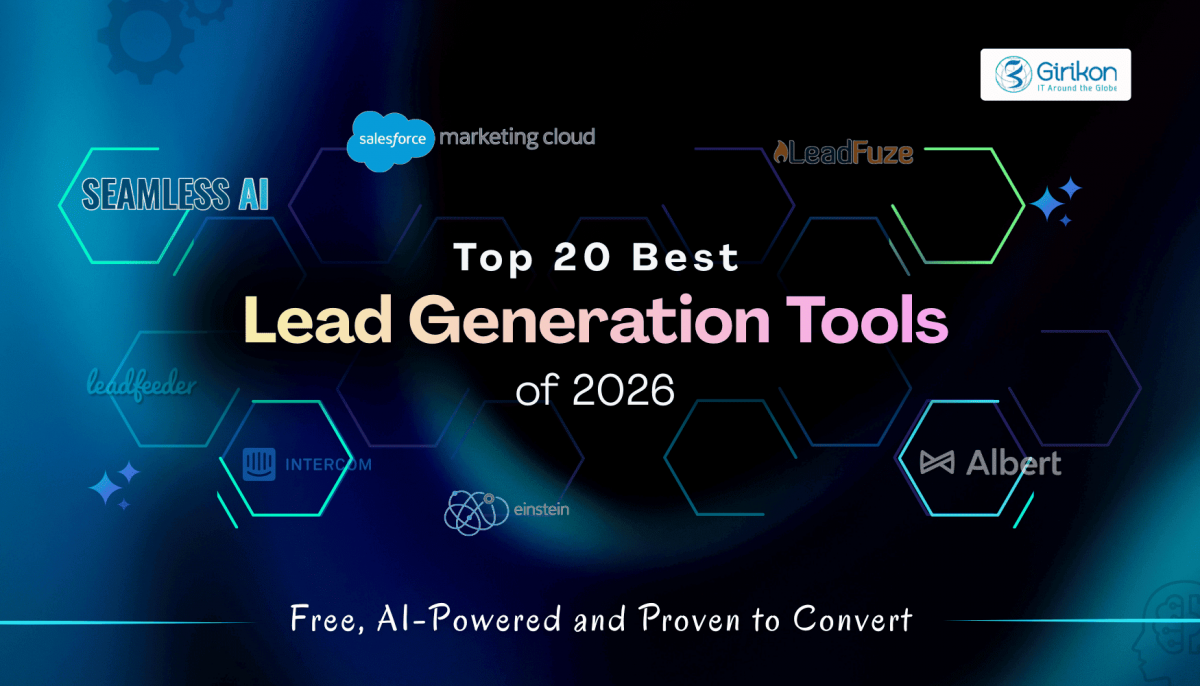Our Blogs
Salesforce – a leader in the cloud CRM arena, has always been at the forefront of technology with more and organizations embracing cloud-powered solutions. Over the years, Salesforce has attained a significant market share and growth owing to its wide array of tools. Besides expanding its suite of tools and applications, this innovative platform also releases new updates regularly to cater to evolving market needs. This has positioned it to maintain its dominance in the enterprise software development market while empowering businesses to streamline operations, augment customer experiences while driving growth. The year 2026 is expected to be transformational for the users of Salesforce with the integration of AI into Salesforce remarkably changing the way businesses optimize, implement and leverage the platform. Let’s understand how AI is bound to impact Salesforce implementation strategies while driving efficiency, growth and innovation. To avail Salesforce AI services, make sure to connect with a reliable service provider.

All About Salesforce Implementation?
Salesforce implementation includes setting up the platform to suit the unique needs of an organization. This includes attuning the platform, migrating data, integrating it with existing systems, and training users to make the most of its capabilities. The goal is to align Salesforce with the process workflows of an organization and helping them streamline their operations while boosting efficiency thereby strengthening customer relationships. Companies can implement Salesforce by engaging their internal team or consider collaborating with a reputed Salesforce consulting partner. They may also adopt a hybrid approach that brings together in-house expertise with external consulting support.
What are the Challenges Involved in Traditionally Implementing Salesforce?
Customization Complexity: While Salesforce offers extensive customization options, over-customization can introduce complexity and might create technical glitch. Traditional implementation practices often fail to strike a balance between customization and sustainability. This makes future upgrades more challenging.
Data Migration: Moving data from existing systems and integrating Salesforce with other applications can be a complex and time-intensive process. Traditional implementation approaches often struggle to maintain data precision, consistency, and smooth integration, particularly when handling large datasets from diverse sources. Training and Adoption: The success of a Salesforce implementation relies on strong user adoption and their training. Traditional methods often struggle to engage users, address resistance to change, and deliver relevant training to help users make the most of the platform. Scalability and Performance: As businesses expand and evolve, traditional Salesforce implementation methods may face challenges in ensuring scalability and performance. Growing data volumes, higher numbers of users, and increasingly intricate business processes often mandates additional resource allocation. Budget Constraints: Conventional methods of implementation often demand significant investment w.r.t time and money, especially for large-scale deployments. Striking the right balance among budgets, timeframe and desired outcomes might be difficult. This finally leads to budget overruns and delays.Key Benefits of AI-driven Salesforce Implementation Services
Data-driven Insights: Salesforce's future offers immense potential for businesses across industries, driven by the integration of powerful technologies like AI and machine learning. With AI-powered advanced analytics, the platform extracts intelligent insights from the vast datasets stored within its CRM. These insights empower businesses to make intelligent decisions and optimize the allocation of resources effectively.
Forecasting and Next Steps: AI-powered Salesforce implementation services enable businesses to move beyond analyzing past data and make precise predictions about future customer behavior. By leveraging machine learning models trained on historical data, AI uncovers patterns and factors that influence customer actions. This predictive capability helps businesses anticipate customer preferences and conversion potential.
Optimizing the Sales Funnel: Salesforce implementation companies can transform the sales funnel by automating lead nurturing, qualification and prioritization. Tools such Einstein Lead Scoring automatically assesses leads based on several factors such as level of engagement, demographics, and more. This empowers sales teams to focus on high-value prospects with greater conversion potential. Einstein Opportunity Insights further augments the process by analyzing deal data and offering actionable suggestions to advance opportunities through the funnel. These insights include offering the most relevant content for sharing, deciding the right timing for outreach, and identifying the most effective communication channels. By leveraging these insights, businesses can simplify their processes, reduce attrition, and ensure faster conversions.
Streamlining Processes: AI-powered Salesforce implementation services authorize organizations to automate mundane and time-consuming tasks, allowing teams to focus on strategic activities. For example, Salesforce Einstein Bots manage customer queries, account details, order tracking, issue resolution and more. This improves response times and customer engagement besides enabling human agents to concentrate on high-value interactions. Additionally, AI can streamline tasks such as data entry, lead assignment, and more, ensuring crucial data is captured and actions are executed at the right time.
Boost Productivity: AI-enabled Salesforce implementation services significantly enhance productivity across business operations. By automating everyday tasks, offering smart insights, and streamlining processes, AI empowers teams to operate more efficiently. For example, Einstein Activity Capture records calendar events, emails and customer interactions, saving precious time on manual data entry. Similarly, Einstein Opportunity Insights prioritizes tasks and provides guided selling recommendations, enabling sales reps to concentrate on high-impact activities. Additionally, AI-driven projection and pipeline management tools assist sales leaders in optimizing resource allocation, identifying tailbacks, and making data-driven decisions to accelerate revenue growth.How is AI Enhancing Salesforce Implementation Strategies?
Smarter Data Management: The foundation of any CRM platform is data but managing large sets of data can be intimidating. AI integration in Salesforce simplifies this process by:
- Data Cleansing: AI tools can be used to figure out and correct duplicate and incomplete entries to maintain data integrity.
- Predictive Analytics: By analyzing legacy data, AI tools help in anticipating customer behavior and preferences.
- Real-Time Insights: AI offers intelligent insights that enable teams to make informed decisions quickly. By enhancing data accessibility and precision, AI maximizes the value of Salesforce investments.
Personalized Experiences: In the coming year, personalized interactions will be the norm that too at every touchpoint. With AI taking center stage, businesses can fulfill these expectations by leverage analytics and machine learning to create tailored experiences. AI-powered Salesforce implementation strategies now include:
- AI-Driven Segmentation: By analyzing customer behaviors, AI tools develop segments for targeted marketing efforts.
- Content Recommendations: Based on individual preferences, AI suggests relevant products and services.
- Proactive Support: AI-enabled chatbots manage regular queries and channel complex issues to human agents. This sort of personalization not just augments customer engagement and satisfaction but also fosters long-term retention and allegiance.
Automated Processes: Automation is a key aspect of Salesforce AI integration, which enables businesses to eliminate redundant tasks, optimize resource utilization, and increase productivity. Key applications include:
- Lead Scoring: By using predefined criteria, AI evaluates leads thereby helping sales teams to focus on high-priority opportunities.
- Sales Forecasting: By predicting revenue trends, AI-powered models support effective resource planning.
- Workflow Automation: AI reduces manual effort and errors by streamlining processes such as email campaigns, task assignments, and more.
- Improved Association and Decision-Making: AI tools in Salesforce enable teams to collaborate more effectively by delivering real-time and actionable insights.
The Bottom-line:
In the years to come, AI is all set to revolutionize the way Salesforce implementation will be performed by organizations. AI-driven implementation will not just enable data-driven decision making but will also pave the way for customized solutions and efficacy. Organizations should seek Salesforce support from a reliable service provider to avail AI enabled implementation.

 +1-480-241-8198
+1-480-241-8198 +44-7428758945
+44-7428758945 +61-1300-332-888
+61-1300-332-888 +91 9811400594
+91 9811400594


















